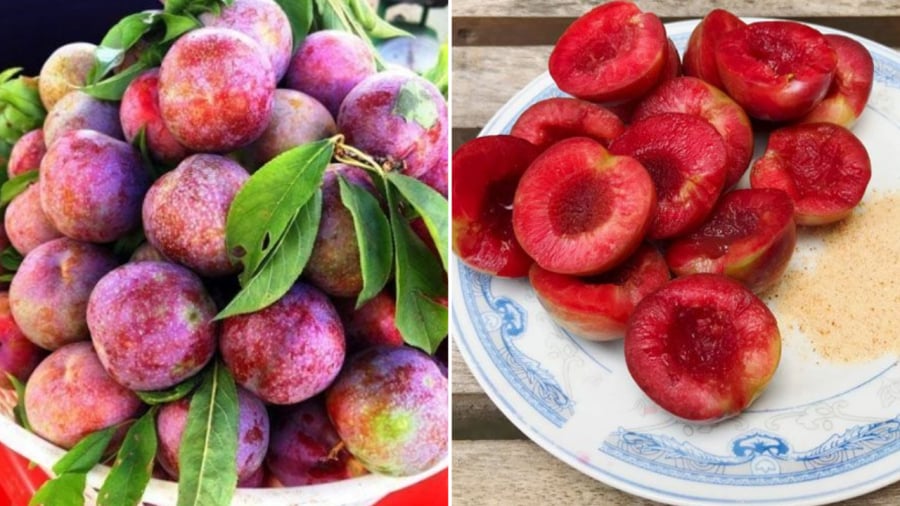Summer is the season for ripe, juicy plums. These tart and crunchy fruits captivate many with their unique flavor. While plums offer abundant nutritional benefits, they should be consumed in moderation to avoid any adverse effects on your health.
Avoid Overeating Plums
The focus here is on Northern plums, distinct from the Southern variety known as “king plums” or “roi plums.” The plum season typically spans from April to August annually, with diverse cultivars such as rice plums, late plums, steel plums, triple-flower plums, and Ta Van plums. Generally, all types of plums boast high nutritional value, with minimal differences among them. Plums are typically rich in fiber, vitamins A and C, and antioxidants. These nutrients aid digestion, slow down the aging process, and boost immunity.
Despite their nutritional benefits, plums should not be consumed in excess. Overeating plums can lead to internal heat, mouth ulcers, and acne breakouts. Individuals with a hot body constitution are particularly susceptible to these issues.
Additionally, excessive plum consumption may impact the stomach, causing acid reflux and gut irritation, especially when consumed on an empty stomach.

Overindulging in Plums May Increase the Risk of Kidney Stones
Plums contain high levels of oxalate, which, when combined with calcium, forms precipitates that reduce calcium absorption in the intestines. Over time, this can lead to calcium deposits in the kidneys and urinary tract, resulting in the formation of kidney stones.
Individuals with a history of kidney stones or a high risk of developing them should refrain from consuming large quantities of plums to prevent exacerbating their condition.
How Many Plums Should You Eat in a Day?
Plums are delicious and packed with nutrients, offering numerous health benefits. However, moderation is key. According to VTC News, to avoid overburdening your digestive and renal systems, traditional medicine practitioner Bui Dac Sang recommends limiting your daily intake to 5-7 plums.
Additionally, individuals with stomach, liver, or kidney ailments should exercise moderation when consuming plums.
Pregnant women can eat plums but should do so in moderation to prevent internal heat, mouth ulcers, and acne breakouts.
It is also advisable to refrain from consuming plums with excessive salt and spicy chili peppers. While this combination may enhance the flavor, it can irritate the stomach and increase the risk of digestive issues. High salt intake is also detrimental to blood pressure and cardiovascular health.
Selecting Ripe Plums and Ensuring Proper Hygiene
When purchasing plums, opt for those with a round, uniform shape and intact skin, free from scratches, bruises, or insect damage. A white powdery coating on the surface is natural and indicates the plum’s self-preservation mechanism. Plums with a glossy skin and a thin layer of natural powder are freshly harvested and of superior quality.
Refrain from buying plums with signs of damage, insect infestation, or fingernail marks. Always wash plums thoroughly and soak them in a dilute salt solution for about 30 minutes before consumption to eliminate surface contaminants. Rinsing plums under running water helps remove dirt and bacteria.





























